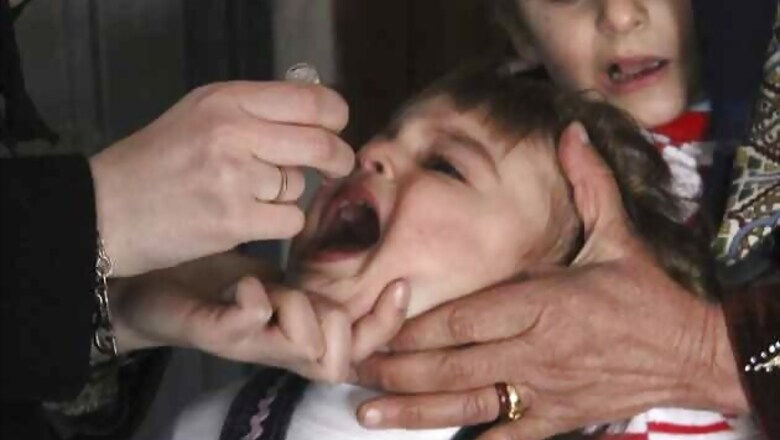
views
Every day, more than 3500 children die in India from preventable diseases like pneumonia, diarrhoea, malnutrition and birth complications. This World Immunization Week I find myself struggling to accept that so many children continue to die when we have the tools to protect them.
Health is featured in the manifestos of two leading political parties, Congress and Bharatiya Janata Party, for this election. Both have acknowledged health as a right and committed to ensuring universal quality healthcare for all citizens. They have also promised increased attention to child health.
This is not the first time such promises have been made and past governments have failed to deliver this basic yet critical service. Five years ago, in the 2009 elections, the Congress guaranteed 'health security for all' whilst the BJP committed to 'health for all'. Some progress has been made, but we are still far from achieving this goal.
The government spends only 1.4 per cent of its GDP on health, the lowest in the group of emerging economies that includes Brazil, Russia, China and South Africa, known as the BRICS.
India has the highest number of under five deaths in the world - 1.4 million every year. According to a recent study in a leading international medical journal, the Lancet, India is off-track to meet the UN Millennium Development Goal 4 target of reducing child mortality by two-thirds by 2015. It estimates that at the present rate of progress, India will only achieve this target by 2020. This average masks gender, socio-economic and geographical inequities - with richer states in India expected to achieve this goal by 2015, and poorer states by 2023.
According to UNICEF, pneumonia and diarrhoea kill more than a thousand children every day. Treatment continues to remain out of reach for those who cannot afford it or live in remote areas where travelling to the nearest health-care centre means losing an entire day's wages. This makes prevention more important than ever. We need to make sure that more parents have information about simple preventive measures such as breastfeeding, hand washing and immunisation.
Despite these limitations, India has emerged as a leader in the battle to end polio. Last month, the country was declared polio free by the World Health Organization - one of the greatest public health achievements in modern history. Only five years ago, it was home to half the world's polio cases. This success, achieved through the national immunisation programme and massive public health awareness campaigns, was widely celebrated by all leading national parties.
We now need to build on this legacy - of more than 2.3 million health workers and 7000 community mobilizers - to bring protection against other diseases to our children.
So let's recommit ourselves to a better, healthier India for our children this World Immunisation Week. All children have the right to survive, to grow up health and access quality and inclusive education. Childhood diseases and malnutrition can cause irreparable damage to a child's brain and life-long disabilities, impacting their ability to learn and ultimately limiting their opportunities.
The government, all communities and civil society have a key role to play in creating this change. Elected representatives will only make child health a priority when we demand that they address this issue with a sense of urgency. The government needs to increase access to immunisation through the Universal Immunisation Programme. Civil society can work with the government to increase awareness about its benefits amongst communities. It is such partnerships that enabled India to defeat polio. If the lessons from that battle have taught us anything, it is that India can achieve anything, if it is committed to doing so.
(Dr. Geeta Sodhi is an activist and the Founder and Director of Swaasthya Trust, an NGO that works on women's and children's health issues. Geeta is a medical doctor and holds a postgraduate degree in child health. She was a Senior Program Advisor to the David and Lucile Packard Foundation (2001-2003). Swaasthya specializes in innovative community based programming on sexual and reproductive health and operates in numerous states including Delhi, Maharashtra, Bihar, Jharkhand and Rajasthan.)


















Comments
0 comment